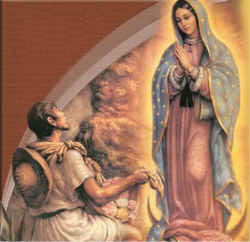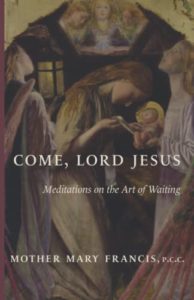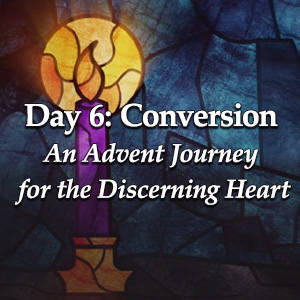Podcast: Play in new window | Download (Duration: 3:10 — 2.3MB) | Embed
Subscribe: Apple Podcasts | Spotify | Amazon Music | Android | Pandora | iHeartRadio | JioSaavn | Podchaser | Gaana | Podcast Index | Email | TuneIn | Deezer | Anghami | RSS | More

Novena a la Virgen de Guadalupe
En el nombre del Padre, del Hijo y del Espíritu Santo. Amén.
“Señor mío, Jesucristo, Dios y Hombre verdadero, creador y redentor mío, por ser vos quien sois, y porque os amo sobre todas las cosas, me pesa de todo corazón haberos ofendido.
Propongo enmendarme y confesarme a su tiempo y ofrezco cuanto hiciere en satisfacción de mis pecados, y confío por vuestra bondad y misericordia infinita, que me perdonaréis y me daréis gracia para nunca más pecar. Así lo espero por intercesión de mi Madre, nuestra Señora la Virgen de Guadalupe. Amén”.
Tercer día
¡Oh Santísima Virgen María de Guadalupe! ¡Qué puedo creer al verte cercada de los rayos del sol, sino que estás íntimamente unida al Sol de la Divinidad, que no hay en tu casa ninguna cosa que no sea luz, que no sea gracia y que no sea santidad!
¡Qué puedo creer sino que estás anegada en el piélago de las divinas perfecciones y atributos, y que Dios te tiene siempre en su Corazón! Sea para bien, Señora, tan alta felicidad.
Yo, entre tanto, arrebatado del gozo que ello me causa, me presento delante del trono de tu soberanía, suplicándote te dignes enviar uno de tus ardientes rayos hacia mi corazón: ilumina con su luz mi entendimiento; enciende con su luz mi voluntad; haz que acabe yo de persuadirme de que vivo engañado todo el tiempo que no empleo en amarte ti y en amar a mi Dios: haz que acabe de persuadirme que me engaño miserablemente cuando amo alguna cosa que no sea mi Dios y cuando no te amo a Ti por Dios. Amén.
Padre Nuestro
Padre nuestro, que estás en el cielo, santificado sea tu nombre, venga a nosotros tu reino, hágase tu voluntad, en la tierra como en el cielo. Danos hoy nuestro pan de cada día, perdona nuestras ofensas, como también nosotros perdonamos a los que nos ofenden. No nos dejes caer en la tentación, y líbranos del mal. Amén
Ave Maria
Dios te Salve, María, llena eres de gracia, el Señor está contigo. Bendita tú eres entre todas las mujeres y bendito es el fruto de tu vientre, Jesús. Santa María, Madre de Dios, ruega por nosotros pecadores, ahora y en la hora de nuestra muerte. Amén
Gloria
Gloria al Padre y al Hijo y al Espíritu Santo. Como era en el principio ahora y siempre, por los siglos de los siglos. Amén
Nuestra Señora de Guadalupe, ruega por nosotros. Amén
En el nombre del Padre, del Hijo y del Espíritu Santo. Amén
Para consultar la novena completa, visite:
Novena A La Virgen De Guadalupe – Podcasts De Corazones Discernidores












